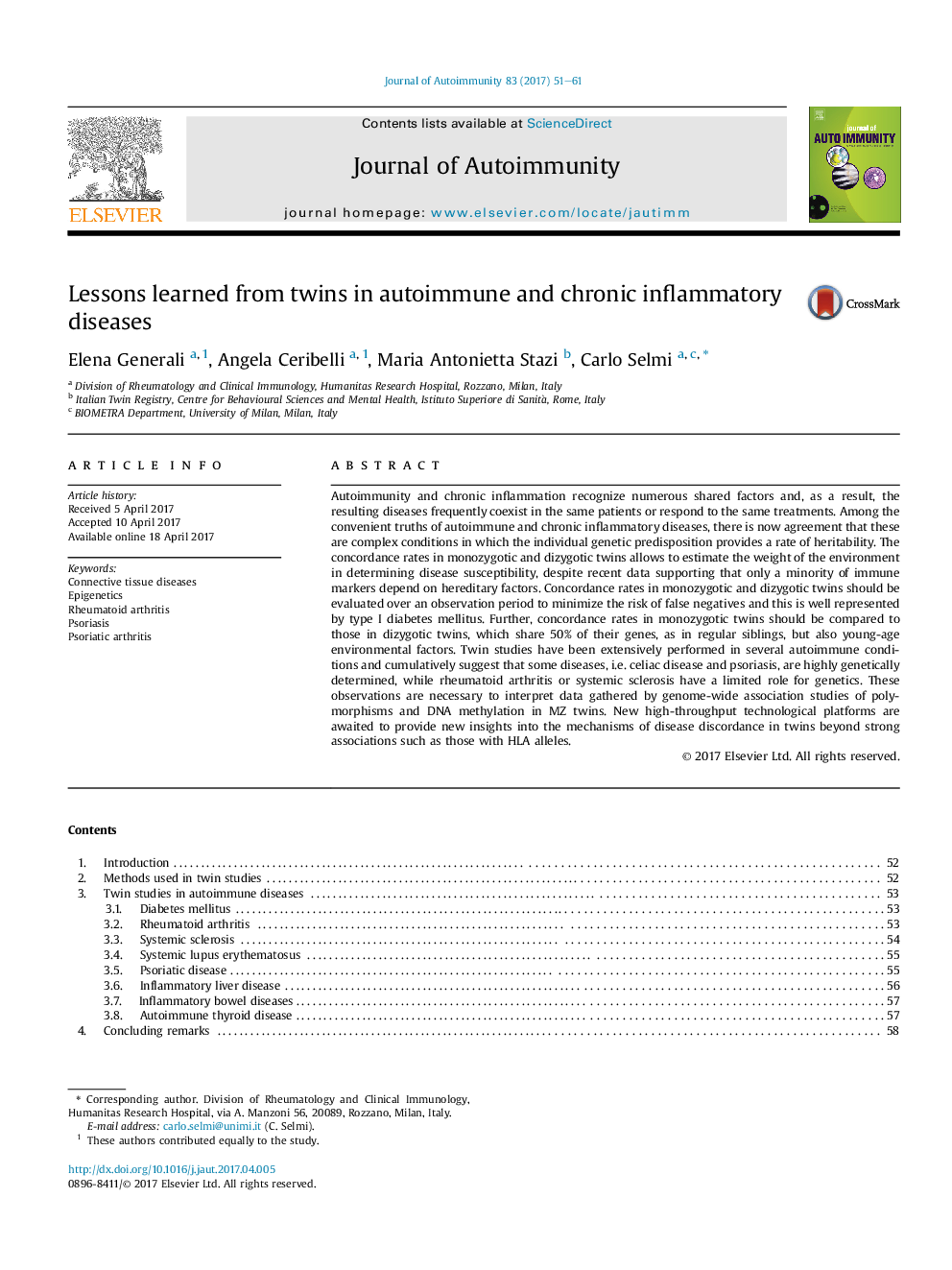| Article ID | Journal | Published Year | Pages | File Type |
|---|---|---|---|---|
| 5667843 | Journal of Autoimmunity | 2017 | 11 Pages |
â¢The concordance rates in monozygotic and dizygotic twins allows to estimate the weight of the environment.â¢Only a minority of immune markers depend on hereditary factors.â¢Twin studies suggest that celiac disease and psoriasis are highly heritable, different from rheumatoid arthritis or systemic sclerosis.â¢Epigenetic changes are thought to be responsible for twins discordance.
Autoimmunity and chronic inflammation recognize numerous shared factors and, as a result, the resulting diseases frequently coexist in the same patients or respond to the same treatments. Among the convenient truths of autoimmune and chronic inflammatory diseases, there is now agreement that these are complex conditions in which the individual genetic predisposition provides a rate of heritability. The concordance rates in monozygotic and dizygotic twins allows to estimate the weight of the environment in determining disease susceptibility, despite recent data supporting that only a minority of immune markers depend on hereditary factors. Concordance rates in monozygotic and dizygotic twins should be evaluated over an observation period to minimize the risk of false negatives and this is well represented by type I diabetes mellitus. Further, concordance rates in monozygotic twins should be compared to those in dizygotic twins, which share 50% of their genes, as in regular siblings, but also young-age environmental factors. Twin studies have been extensively performed in several autoimmune conditions and cumulatively suggest that some diseases, i.e. celiac disease and psoriasis, are highly genetically determined, while rheumatoid arthritis or systemic sclerosis have a limited role for genetics. These observations are necessary to interpret data gathered by genome-wide association studies of polymorphisms and DNA methylation in MZ twins. New high-throughput technological platforms are awaited to provide new insights into the mechanisms of disease discordance in twins beyond strong associations such as those with HLA alleles.
